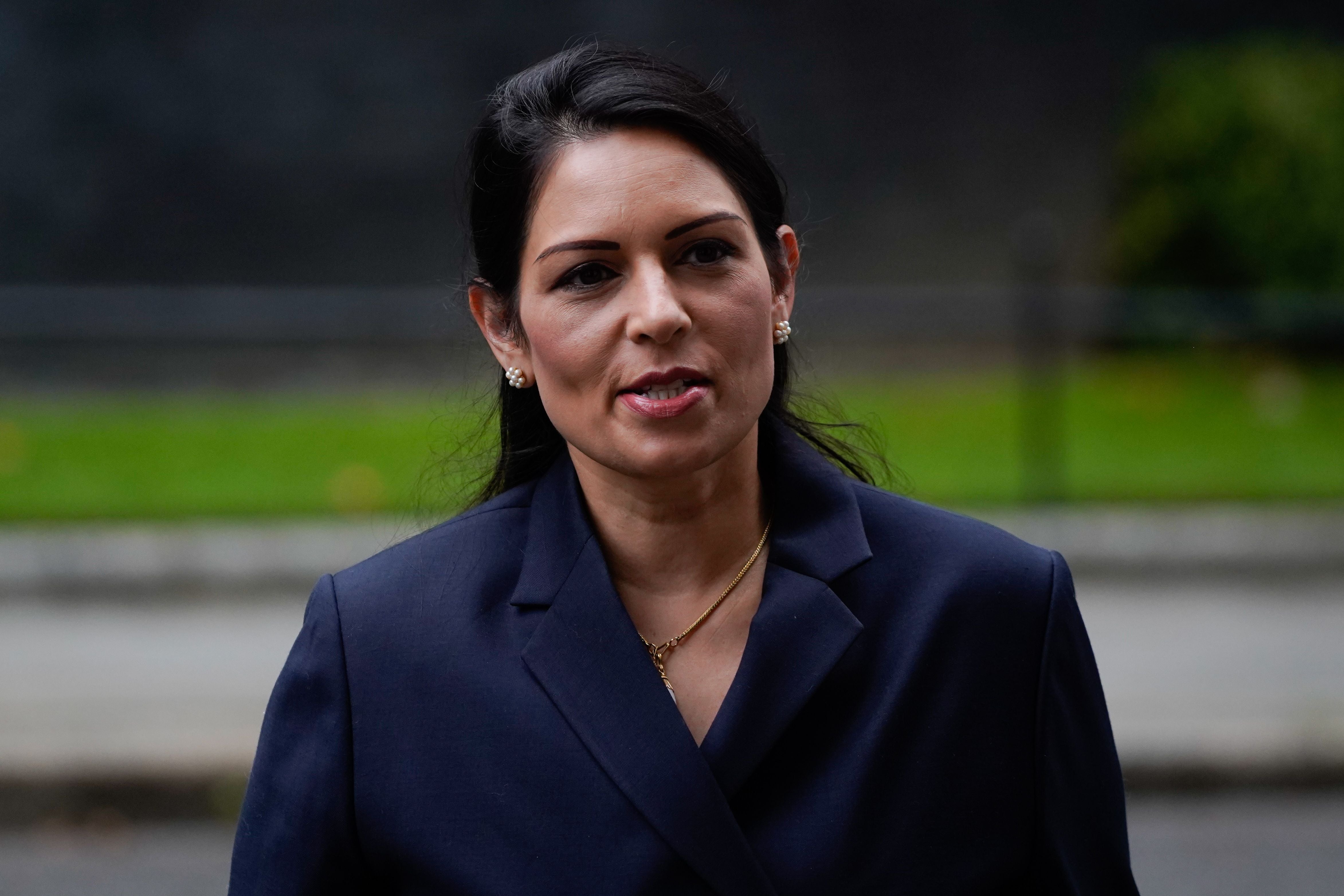Stop and search: Ministers launch consultation on extending powers for known knife offenders
Knife crime hit record high last year, according to official figures

Your support helps us to tell the story
From reproductive rights to climate change to Big Tech, The Independent is on the ground when the story is developing. Whether it's investigating the financials of Elon Musk's pro-Trump PAC or producing our latest documentary, 'The A Word', which shines a light on the American women fighting for reproductive rights, we know how important it is to parse out the facts from the messaging.
At such a critical moment in US history, we need reporters on the ground. Your donation allows us to keep sending journalists to speak to both sides of the story.
The Independent is trusted by Americans across the entire political spectrum. And unlike many other quality news outlets, we choose not to lock Americans out of our reporting and analysis with paywalls. We believe quality journalism should be available to everyone, paid for by those who can afford it.
Your support makes all the difference.Ministers have launched a consultation to give police greater powers to stop and search individuals with prior knife convictions.
The Home Office claimed the measures would help authorities target the “small minority of persistent” offenders and combat the “devastating” effects of knife crime.
According to official figures released earlier this year knife crime in England and Wales hit a record high last year, with the number of offences involving knives and sharp instruments increasing seven per cent to 45,600 in the year.
Launching an eight-week public consultation on the proposals, the department said it aims to use Serious Violence Reduction Orders (SVRO) to increase the chances of repeat offenders being caught.
The measures were trailed in the Conservatives’s 2019 general election manifesto, and court orders will determine the length of time an individual is subject to an SVRO.
Under current stop-and-search laws, police typically must have “reasonable grounds” to carry out the search, such as suspecting someone is carrying drugs or a weapon.
But under the new powers, the department said officers would be able to stop and search those who are subject to an SVRO to “check if they are unlawfully carrying a knife or offensive weapon again”.
However, shadow home secretary Nick Thomas-Symonds, said: “The truth is that under the Tories violent crime – and knife crime in particular – has risen right across the country, while ministers have overseen a rise in reoffending.”
He added: “That is, sadly, the inevitable consequence of deep cuts to the police and preventative services. A range of actions are needed to tackle repeat offending, with a strategy that carries the confidence of all our communities, not simply a public consultation on piecemeal measures.”
Kit Malthouse, the crime and policing minister, said: “Knife crime has a devastating effect on young lives and our neighbourhoods. Our ambition is for these new powers to transform the way stop and search is used by targeting the small number of the most serious and persistent criminals.
“The law-abiding minority should not have to live in fear, which is why we are taking action across all fronts to keep them safe.”
Chief constable Jackie Sebire, the National Police Chiefs’ Council (NPCC) lead for serious violent crime, said she welcomed the consultation, adding: “We know that it is only by listening and working together that we can bring about the sustained changes needed to tackle the harms of knife crime.”
The NPCC announced in June it was also drawing up a “plan of action" to address racial inequalities in the criminal justice system, which will also address concerns over stop and search powers.
Black people are almost nine times more likely than white people to be stopped and searched in England and Wales and campaigners allege that the power unfairly targets black and ethnic minority communities in urban areas.
Liberal Democrat home affairs spokeperson Alistair Carmichael called for a return to "community policing" so officers can build a relationship with the areas they serve.
"A targeted approach can only work if police officers have the trust and confidence they need to identify the weapon-carriers in their communities," he added.
The government is making a series of announcements on law and order as ministers come under criticism for threatening to break international law over Brexit.
On Monday, they will also announce that long-promised legislation to give life sentences to drivers who kill someone in the most serious cases will be introduced to parliament next year.
Under the proposals drivers who cause death by speeding, racing or using a mobile phone, could face sentences exceeding the current maximum of 14 years, the Ministry of Justice (MoJ) said.
Robert Buckland, the justice secretary, added: “This government has been clear that punishments must fit the crime but too often families tell us this isn’t the case with killer drivers.
“So, today I am announcing that we will bring forward legislation early next year to introduce life sentences for dangerous drivers who kill on our roads, and ensure they feel the full force of the law."

